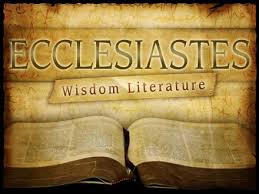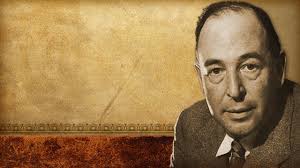I turned a bend, walking on the pavement beside the River Gombak. A Chinese uncle, also walking on the pavement, but towards me, saw me. He lunged to the side, onto the flower bed, as far as possible from me, hand on mouth. He dashed away like he was in the 100 metres in Tokyo.
I don’t think the sight of me has ever terrified anyone so. There’s only one explanation. My mask had slipped off my nose. I was potentially a carrier of death. I was a menace to be avoided, if not routed.
This is now our world. Not just COVID-19, but COVID-19 after 18 months of death, deprivation, and destitution. And now, the Delta variant.
The encounter with that uncle made me return to thinking about life and death.
Just the day before, my wife received news that one of her cousins was in an ICU, being treated for COVID-19. And that his wife died of a heart attack when told he’d been afflicted. They have two teenaged children.
That family news came on the heels of the news that a contractor I’ve used for two decades died a couple of weeks earlier of COVID-19, despite taking very many precautions to avoid infection.
How not to think about life and death?

I thought of Albert Camus, an atheist French writer-philosopher who was awarded the Nobel Prize for literature in 1957. I thought of his book “The Plague,” published in 1947. Its fictional but based in the real city of Oran at the beginning of the 20th century.
Oran is afflicted by a plague which kills. For about a year and a half, no one can enter or leave. Many rules, relating to isolation, quarantine, sanitization, and vaccination are imposed. The tone of the people changes from sorrow over loss of freedom to solidarity against a common foe.
“The Plague” is required reading in a course I’m taking. It confronts the hard topics of the meaning of life and death and living in community. After I finished reading it, I did some research on Camus.
My research showed that one of the things Camus is most remembered for is his answer to the question “What’s the most important question in philosophy?” His answer was:
“There is only one really serious philosophical question, and that is suicide.”
He gave that answer in his book “The Myth of Sisyphus.” (Sisyphus is the Greek king of Corinth whose punishment in Hell was to keep pushing a rock up a hill, despite it rolling down repeatedly).
Absurdity is, for Camus, the first key theme of life. We are born, we enjoy, we suffer, we die. What’s so bad about death? Do we have an answer for why we don’t just cut to the chase and kill ourselves?

Preacher Qoholeth, in Ecclesiastes, reviewed the same data and came to the same conclusion: “meaningless, everything is meaningless” (Ecclesiastes 1:2).
But neither Camus nor the preacher recommended death, suicide? Why?
I can’t say for sure why Camus didn’t recommend suicide, and why he thought he could tell the rest of us how we should live. I think he just said we should focus on being good neighbours, making peace, accepting diversity, and building solidarity. He just knew we’d agree to such focus.
For Camus, a second key theme of life is rebellion.
Camus says we must rebel against natural forces which seek to rob us of the quality of our lives and even end our lives. For Camus, pandemics are one of the means nature uses to limit the freedom of movement of all, and to hurt or kill many. He says we must resist such evil intentions.
Camus rejects any attribution of disease, discord or other suffering to divine action or permission. He rejects any suggestion that the way out of a pandemic is confession of sins and begging for God’s mercy.
Though he counted Christians among his friends, Camus has no sympathy for their belief in God, let alone sin and punishment.
Camus contends that we live in a purposeless world, that there is nothing beyond life, but we must choose to be purposeful because we choose to live. And, Camus says, just as we must choose not to kill ourselves, we must choose not to kill others, though there is neither eternity nor hope.
Camus says we must live for the here and now. In other words, let’s eat, drink and be merry, for tomorrow we die. (While yet complying with quarantine rules designed to limit the spread of disease.)
Unlike Camus, the other ‘absurdist,’ Qoholeth, is certain that we have eternity in our hearts (Ecclesiastes 3:11).
I put ‘absurdist’ in quote marks because a close reading of Qoholeth’s book has led me to think he’s not quite an absurdist. The clue to this lies in the Hebrew word hebel which is translated ‘meaningless’ (or vanity).
Hebel can also mean vapour or “fleeting; here today, gone tomorrow.” So, Qoholeth is using a play on words. He’s actually saying, “live in the light of eternity,” for death is as sure as the darkness of night.
We don’t talk about death, although we are surrounded by COVID-19 corpses and fears. Thoughts of death should not lead us to despair, because this life can be lived well, despite its seeming absurdity.

The absurdity is just a mist, arising from a lack of perspective, the perspective of heaven. Heaven is an inseparable part of Christian belief about what happens after death. In his book “A Grief Observed,” C S Lewis wrote:
“Heaven will solve our problems, by showing us subtle reconciliations between all our apparently contradictory notions. These notions will be knocked from under our feet. We will see that there was no problem.”
Life is a gift God has given us, to steward, to enjoy, to use for his glory. For Christ-followers, death is a door to eternity and a new land.
Camus rejects that belief. He does not choose to use death as a guide to life. For Camus, the guide is rebellion. His sense of identity comes from his formulation of the meaning of life: “I revolt, therefore we are.”
The irony of living with eternity in our hearts is that we must balance our desire for the good life, both for ourselves and for others, with our desire for a good death for all.
For Christians, contra Camus, a good death is found in obedience, not rebellion. The Chinese uncle needs to think about death, not just as something to be avoided, but something inevitable and meaningful. And yes, I should be more careful how I wear my mask.
To learn more about Rama, click here.


